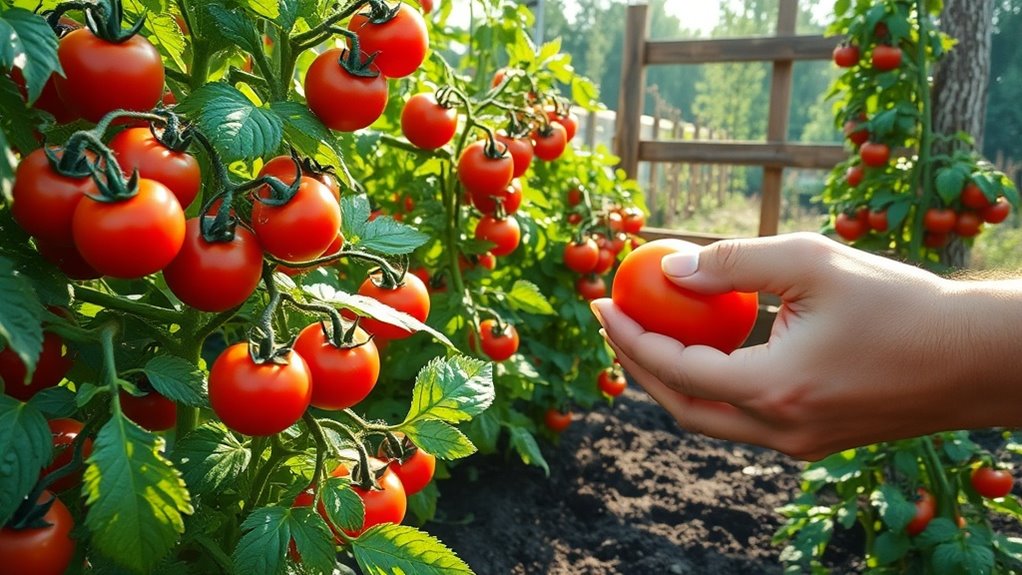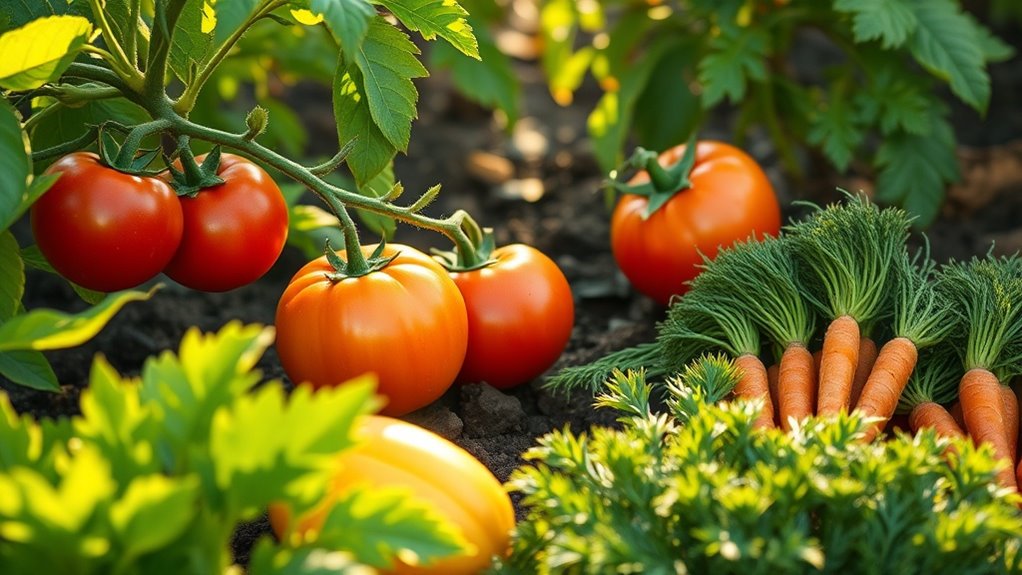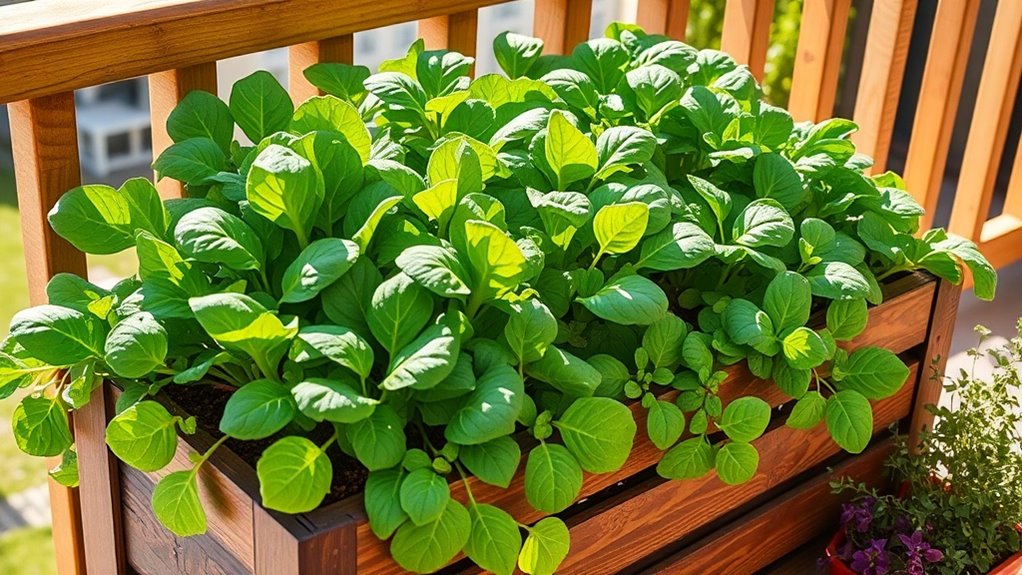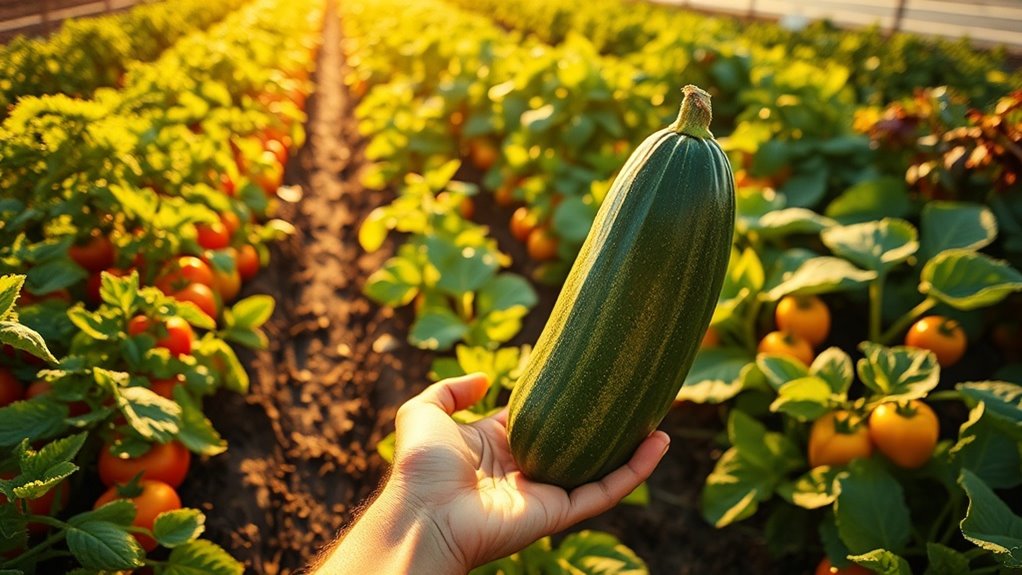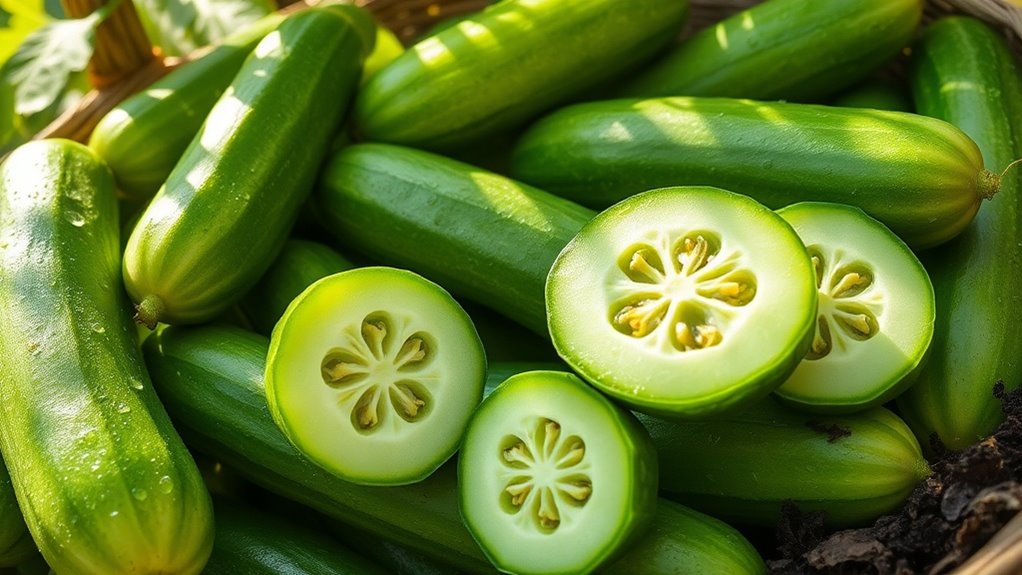How to Grow Tomatoes Like a Pro
You might think growing tomatoes is easy, but achieving a fruitful crop requires specific techniques and knowledge. From selecting the right variety suited to your climate to preparing nutrient-rich soil, each step is crucial for success. Understanding watering practices and sunlight needs can make all the difference in your yield. Plus, managing pests organically can boost your garden’s health. Let’s explore how you can optimize every aspect of tomato cultivation for impressive results.
Choosing the Right Tomato Variety
When you’re deciding which tomato variety to grow, it’s essential to consider your climate, space, and culinary needs.
Determinate types thrive in smaller spaces and yield at once, while indeterminate varieties offer continuous harvests.
For warm climates, choose heat-tolerant varieties. Incorporating companion planting strategies can further enhance growth and productivity, ensuring a bountiful and delicious tomato crop tailored to your lifestyle.
Preparing the Soil for Planting
Selecting the right tomato variety sets the foundation for a successful growing season, but preparing the soil is equally important for nurturing healthy plants. Start by testing pH levels and ensuring adequate drainage. Incorporate organic matter like compost to enhance nutrient content. Regular tests to monitor pH level changes can help maintain optimal growth conditions.
| Soil Component | Recommended %+ |
|---|---|
| Organic Matter | 30% |
| Sand | 40% |
| Clay | 30% |
Watering Techniques for Healthy Growth
Ensuring your tomatoes receive the right amount of water is crucial for their health and productivity, as too little can lead to stress while too much can cause root rot.
Water deeply and consistently, aiming for about 1-2 inches per week, depending on rainfall.
Use drip irrigation or soaker hoses to deliver moisture directly to the roots, minimizing evaporation and promoting efficient absorption. Observing your plants’ needs can help you establish a consistent watering routine for optimal growth.
Sunlight and Temperature Requirements
For optimal growth, tomatoes thrive in full sunlight, requiring at least six to eight hours of direct sunlight daily to produce robust yields. Maintaining temperatures between 70°F and 85°F is crucial for fruit development. Extremes in temperature can hinder maturation or cause blossom drop, so monitor conditions closely to ensure your plants flourish under ideal circumstances. Incorporating fish emulsion fertilizer can further support healthy plant growth in your tomato garden.
| Factor | Ideal Range | Impact on Growth |
|---|---|---|
| Sunlight | 6-8 hours/day | Increases yields |
| Day Temperature | 70°F – 85°F | Promotes fruit set |
| Night Temperature | Above 50°F | Prevents stress |
| Soil Temperature | 60°F – 75°F | Enhances root growth |
| Humidity Levels | 40% – 70% | Reduces disease risk |
Managing Pests and Diseases
Even in an ideal environment with the right sunlight and temperature, tomatoes can still face challenges from pests and diseases that threaten their growth and yield.
To manage these issues effectively, consider these strategies:
- Regularly inspect your plants for signs of pests or diseases.
- Implement companion planting to deter pests.
- Utilize organic pest control methods, like insecticidal soap or neem oil. Additionally, introducing beneficial insects like ladybugs can help control aphid populations naturally.
Harvesting and Storing Your Tomatoes
How do you know when it’s the right time to harvest your tomatoes?
Look for deep color, firmness, and slight softness at the stem end. Ideally, they’ll be picked when fully ripe for maximum flavor.
Store them at room temperature away from direct sunlight. For longer storage, refrigerate, but note that this can mute their flavor.
Enjoy your homegrown bounty!

